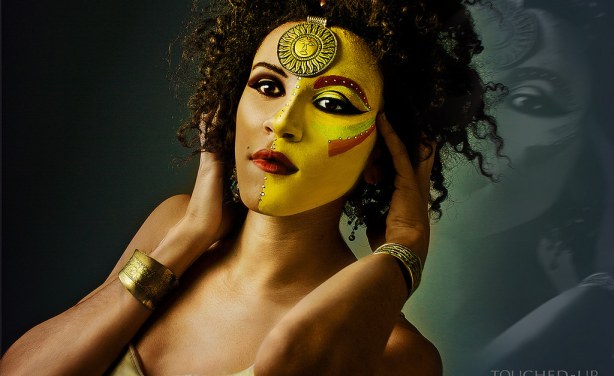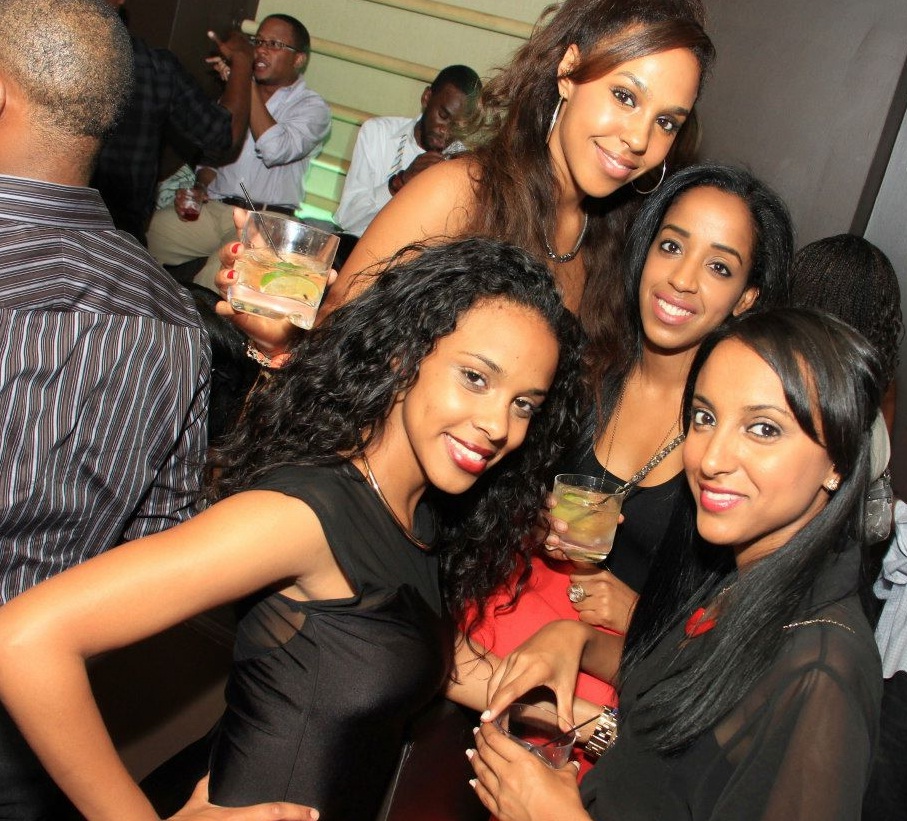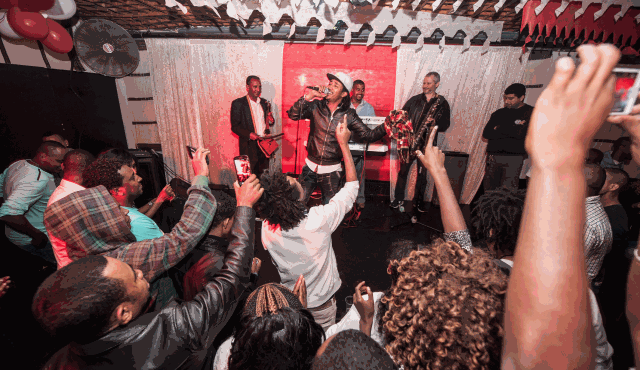
By Hawaz Merawi
Addis’s nightlife has always been an active and vibrant experience. No matter what people’s tastes, choices are always available, from quiet restaurants, to traditional taverns and ultra modern lounges. However, after the unrest in parts of the country and the government’s decision to declare a state of emergency, businesses in all sectors took a hit.
In the time since the declaration of emergency, the tourism industry has decreased significantly. Foreign investors are more cautious about putting their money in Ethiopian projects, and the shutdown of mobile data networks and social media sites has put a dent in the earnings of internet businesses. Just like other sectors, following the declaration of the state of emergency in early October, the night life in Addis took a nose dive.
Bole, one of the city’s entertainment and social epicenters, was no exception to the slowdown. At Mama’s Kitchen, a well known bar and restaurant, visitors dropped by half.
“Normally, a minimum of 200 customers a night would visit our bar. Now it has declined to 90 to 100,” said one staff member. We have stopped hosting live entertainment shows for the time being.”
The government’s action was the first such declaration in 25 years. The directive on the state of emergency prohibited the movement of unauthorized persons in economic core centers, infrastructure and investment institutions, large scale farms, factories and similar development institutions from 6:00pm. to 6:00am in certain areas of the country.
Whether there was a misunderstanding of this directive on the part of the public, or because the state of emergency itself led to people becoming more cautious, fewer and fewer people were moving around, especially at night.

The misconceptions and reservations about the state of emergency meant the breakdown of night time businesses. Even as the directives were explained, nothing seemed to have changed for the businesses.
On October 20, ten days after the state of emergency was declared, Fortune visited some of the affected businesses.
“It used to be a crowded pub with standing-room only,” the manager of a pub explained. “In the last fifteen days the number of customers has declined at a shocking rate.”
“People who stay late are either those who live around Piassa, or the members of the police or other security forces who know our pub. Others don’t feel comfortable staying out late,” he added.
Piassa, has long been the entertainment hub for city dwellers. The legendary district has retained its old vibe.
Following the declaration of the state of emergency, however, even pubs a stone’s throw away from the historic Taitu Hotel in Piassa, appeared like ghost towns.
“The streets get quieter and stranger after 12:00am,” said a Piassa security guard.
“We had to announce that we were closing for the night to get people to leave before,” another nightclub owner in Piassa told Fortune. “But recently, the club is empty before midnight.”
Another famous bar and lounge located along Cameroon Street (opposite Bole Medhanialem Church) employs more than a hundred individuals and pays more than 200,000 Br in monthly rental fees. The slowdown meant that the business was operating at a loss.
“We have become unable to pay rent and salary to our employees,” said the very angry bar owner. Nightclubs and bars were not the only ones affected by the apprehension created by the state of emergency. Taxi drivers who work at night and commercial sex workers were also affected.
Babi, a taxi driver, used to earn upwards of 1500 Br a night. “That has become history,” he told Fortune. In the two weeks following the state of emergency, his income dropped by half. There were days when he returned home empty-handed.
However, month and a half on from the initial declaration, the situation is far from the same. Business has begun to rebound in a big way.
The area known as Chechnya, on Mickey Leyland Street, near Atlas Hotel, is an example of what a thriving African district looks like. Cheap and crowded in the past, the area was almost completely empty in the days following the state of emergency declaration.

But now, the area is coming back to life. A return visit to bars and nightclubs shows that people are en force, enjoying their previous pastimes again. And the money is flowing back with them.
Chechnya is once again becoming a busy and bustling district, with people moving around without fear or concern, even late at night. People can be seen coming out of bars and clubs into the small hours of the morning, and more sex workers stand lining the streets.
“As more and more people start to come back, our business is really improving,” said one commercial sex worker.
Earlier last month, business was much slower. “I used to make at least 500 Br a night,” a young sex worker told Fortune last month. “Now, I would be lucky to earn 200 Br.”
The situation in Piassa is also recovering. Although the effects of the state of emergency were less severe that in Chechnya and Bole, business has gotten appreciably better. “We are observing improvements in the number of customers,” said a manager of one of the bars in Piassa who spoke to Fortune.
Bar Melo and Surrender Night Club, located in Chechnya and Bole respectively, are becoming more and more crowded, like they used to be. They were nearly vacant a month ago when Fortune visited.
“Last month, the streets would be empty after 12:00 am. These days, hordes of young people move from one bar to the other till 3:00am,” a guard keeping shops in front of Bole Medhanialem church explained.
Outside of the main entertainment hubs of the city, business is back as well.
“A month ago, when 11:00pm came around, bars and restaurants would empty out. But now, more people start to arrive the later it gets,” reflected a barman in one of the bars in Haya Hulet.
Taxi drivers who used to head home after 12:00am, now stay longer to wait for customers that are mostly people enjoying themselves in the bars and nightclubs. Though they are not getting income equivalent to what they had before the declaration of the state of emergency, it is now improving. “I used to earn 100 Br on average just after the state of emergency. Now I earn around 300 Br in a night. My income increases to 600 Br on Saturdays,” a taxi driver explained to Fortune.
“My family is dependent on this income. They wouldn’t have been harmed if the government solved the people’s grievances through discussion,” he added.
But not everyone is happy with the speed of the recovery. Despite the improvement in the number of his customers, a young man selling cigarettes, chewing gums and tissues wandering on the streets Chechnya doesn’t look happy.
“Though I’m earning up to 50 Br in a night, I used to make more money before the state of emergency,” he said.
However the recovery has come about, it is certainly a relief to those who make their living at night. It remains to be seen whether the other parts of the Ethiopian business sector make a similar recovery.


